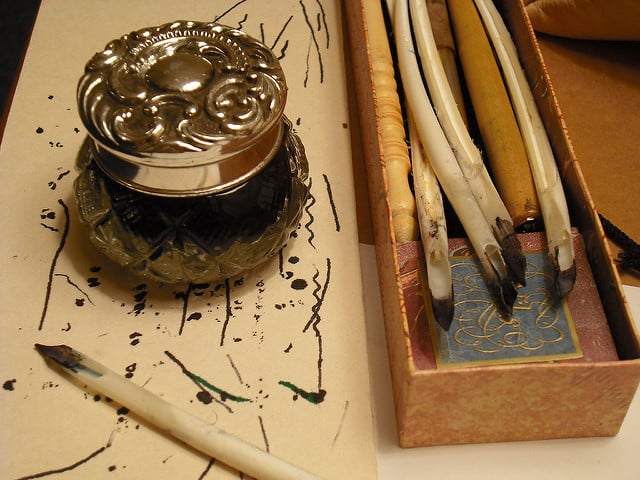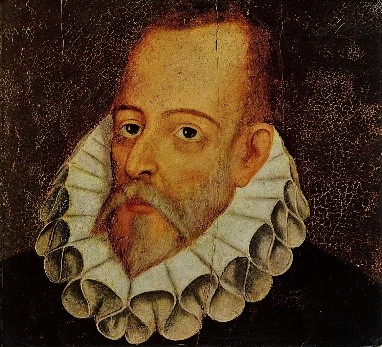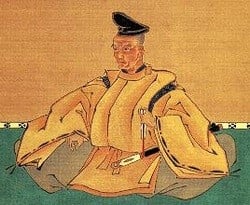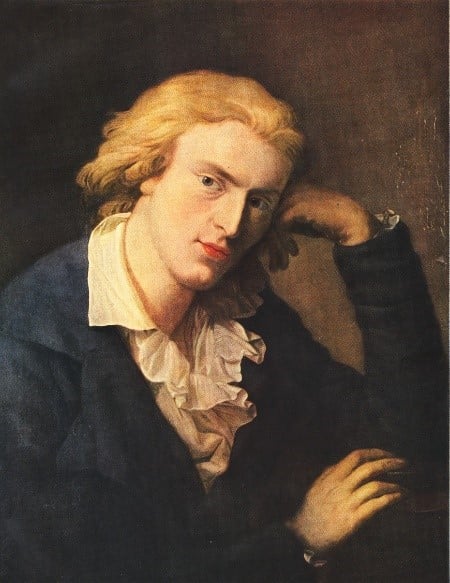Equivalents of Shakespeare Around the World: Part 1

Photo via Flickr
To be or not to…(zzzz). Oops, sorry about that. That’s usually where most of our brains shut down as our English teacher babbles on in a desperate attempt to translate centuries old tragedies.
But whether you loved or hated the hours spent pouring over his seemingly cryptic texts the English is nonetheless riddled with his words and phrases. And he didn’t just impact your reading material, but how you speak as well. Now that’s the mark of a good writer.
Love me or hate me, both are in my favor…If you love me, I’ll always be in your heart…If you hate me, I’ll always be in your mind. – Shakespeare (take that haters!)
Although many students around the world study Shakespeare (particularly nations that England has, well, ‘interfered’ with), something we are often not taught in schools are the poets and writers around the world who also had a profound influence on their respective languages. So just who are considered the equivalents of Shakespeare?

Photo via Wikimedia
Spanish Shakespeare: Miguel Cervantes (1547 – 1616)
The man who also gifted us with the magical word Quixotic not only lived in the same era as Shakespeare but died on the same day too! Known as the celebrated author of Don Quixote, the first European novel and most distributed book (after the Bible), he also wrote dozens of plays, poems and short stories that surprisingly few English speakers know about.
His work also had a monumental effect on the Spanish language. Many popular phrases were derived from his clever play on words that are still used today. Signs of his work can even be found in the English language with expressions like, “the sky’s the limit” and, “bigger fish to fry”.
Any budding Spanish student should read his book. Why? (I hear you ask). Because it’s the best Spanish book ever, and it’s funnier than Shakespeare (IMO).

Photo via Wikipedia
Japanese Shakespeare: Chikamatsu Monzaemon (1653 – 1725)
Often compared to Shakespeare, although he lived a little later on, Chikamatsu Monzaemon was known as one of the greatest Japanese dramatists of his time that also used a mixture of poetry and prose in his Kabuki and Bunraki (puppet) plays. Some of his most influential plays are The Love Suicides at Sonezaki and The Battles of Coxinga,and unlike most playwrights of his time Monzaemon did not act in his own plays (which totals to whopping one hundred and thirty).
Despite his impressive body of work and reputation there’s little evidence as to what extent he influenced the Japanese language. But of all the Japanese dramatists he by far exerted the most influence over the trajectory of Japanese drama. And all through the power of puppets.

Photo via Wikimedia
German Shakespeare: Friedrich Schiller (1759 – 1805)
Schiller caused quite a stir with his very first published play Die Räuber in 1781. Not only was it a national sensation but it incited the artistic Sturm und Drang movement in the 18th century. Many regard him as one of the most important German classical dramatists of all time (Geothe is a close second though) and his quotes are still ubiquitous in both German advertising and politics today.
Unfortunately, his works were also used by the likes of Hitler where the quote, “The Strongest man is mightiest alone”, from Schiller’s William Tell (Act I, scene III), titles one of the chapters from his autobiographical book Mein Kampf and became his motto during WWII. His Nazi generals also gave each other nicknames from Schiller’s plays. Ironically Jews were also inspired by his work and felt that it spoke to their plight and promoted Hitler to ban them from performing or even reading his plays.
Thankfully his works are accessible by everyone today and countless tributes to his work can be found dotted around German monuments, plazas and schools too.

Photo via Wikimedia
Russian Shakespeare: Alexander Pushkin (1799-1837)
Not only is he a great poet and writer of African descent but he is widely regarded as the founder of the modern Russian language. His versatility as a poet, dramatist and novelist breached the gap between colloquial speech and the French language which was popular amongst aristocracy. Some of his most famous works include the short story, “The Queen of Spades” and the poem, “The Bronze Horseman”. Pushkin also deeply admired Shakespeare’s work and similarly drew inspiration from earlier periods whilst reflecting on his own.
All’s Well That Ends Well
Certainly there are other factors and people who greatly impacted said languages and cultures (the translation of the Bible by Martin Luther certainly being one of them in Europe), and I’d encourage you to learn about these factors too. Putting some time aside to study country’s history whilst studying its language will incidentally enrich your grasp of the language, soften cultural barriers and give more context to new words or phrases you encounter on your lexical journey. Learning popular phrases by Cervantes like, por la muestra se conoce el paño (the proof of the pudding is in the eating), will also help to build connections between your own and the target language.
In a world where it is impossible to avert the waves of social media and IMs, retaining the studies of true classics like: Shakespeare, Cervantes, Monzaemon, Schiller, Pushkin and many others who played crucial parts in their country’s literature not only boosts your knowledge of your target language but honours those who built the very backbone of it.
Do you agree with our list? Who is the Shakespeare equivalent in your country/ target language? Let us know in the comments section below!
